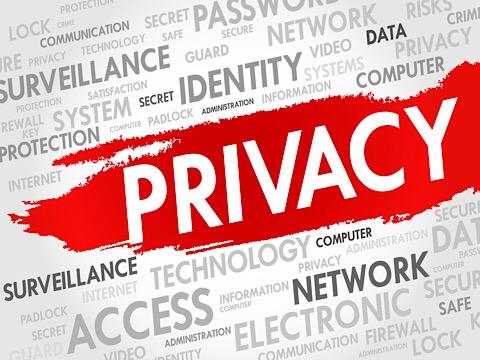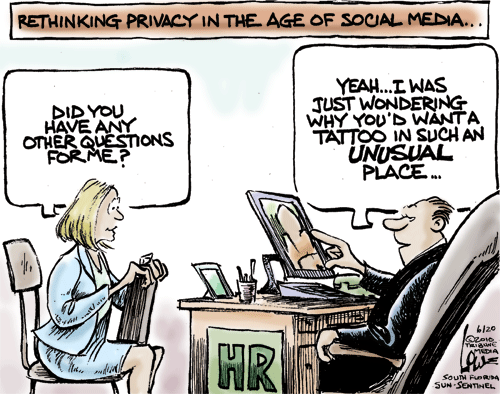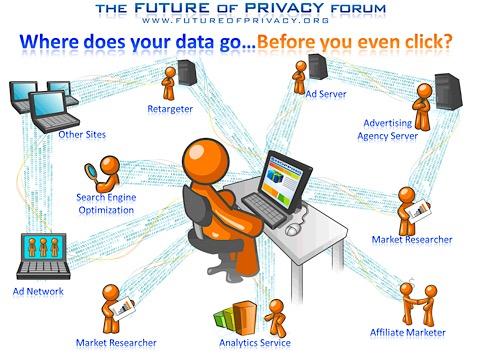Privacy & security trends
Global Surveillance – mass surveillance technology continues to strengthen and expand around the world – particularly in the United States, United Kingdom, Australia, and other Western countries. (See also the Five Eyes, Nine Eyes & 14 Eyes surveillance alliances.) This trend continues on, regardless of which political party is in office.
ISP Spying – Internet providers often record connection times, metadata, and DNS requests, which gives them every website you visit (unless you’re using a good VPN). In many countries, this is not only legal, but required. See for example in the United Kingdom (with the Investigatory Powers Act), United States (Senate Joint Resolution 34), and  now also in Australia (mandatory data retention). A VPN is now essential protection against your internet provider if you want to retain a basic level of online privacy.
now also in Australia (mandatory data retention). A VPN is now essential protection against your internet provider if you want to retain a basic level of online privacy.
Censorship – The internet is also becoming less free due to censorship efforts and content blocking. Whether it is China, Germany, or the United Kingdom, authorities are working hard to censor content online. This is particularly the case in Europe. The UK is now considering 15 year jail sentences for people who view “offensive” websites.
Profiling, Malicious Ads & Tracking – Websites are increasingly hosting invasive advertisements that also function as tracking tools. Pop-ups and dangerous “click-bait” ads can also deliver malware and take your device over for ransom (ransomware). Malicious ads (malvertising) delivered through third party ad networks trick users into downloading, can even be hosted on major websites. While cookies are still used to track your online behavior, the technology called “fingerprinting” leverages the ability to interrogate your network devices to identify elements unique to your technology and online behavior to track your browsing activity across the web without cookies.
There is well-founded concern that governments, employers, insurance companies, unscrupulous retailers, financial institutions, and any third party are also collecting and mining this highly personal information with total disregard for your privacy rights. For example, they can build a detailed profile of you, which may or not be accurate, and use it to determine:
• If you represent a subversive risk to your government
• If you might pose a risk for drug or alcohol abuse or whether you  may not be quite the “right fit” for a potential employer whether you qualify for a loan or insurance coverage
may not be quite the “right fit” for a potential employer whether you qualify for a loan or insurance coverage
• What variable price you are charged for goods or services (different prices being displayed to different people for the same products or services)
• Whether you should be accepted as a member to a club or society
• Whether you are a suitable match for a potential mate
• Your suitability as a potential tenant or renter
Our profiles and the data used to build them are becoming a substitute for blood, urine, and genetic testing. But, unlike the tightly regulated testing of these substances, the how, where, and by whom your online profile is used is the Wild West - Anything Goes. And you are being watched. Private and government-sponsored organizations are monitoring and recording all of your online activities. Read the article on the EFF web site entitled “Behind the On-Way Mirror: A Deep Dive into the Technology of Corporate Surveillance” for an in-depth look at how corporations are monitoring and tracking your online activity.
An example is the alarming trend of employers asking job candidates for their social media passwords. Currently this takes the form of the potential employer asking for the password directly and poking around your social media account or by asking the job candidate to login with the scrutinizing employer taking a look.
From a privacy perspective, it’s important to block ads because they function as trackers by recording your online activity to create an intimate user profile, which is used for targeted ads. Ads are also risky from a security perspective because they are often malicious and can infect your device when a web page loads – no clicks required. 
Add it all up and the trackers and profilers can follow you across all your devices all the time, anywhere, and they don’t have to rely solely on your IP address.
This means that choosing and implementing a strong set of online privacy and security tools is now more important than ever. How much privacy and security do you need given your unique situation?
Everyday internet surfers are seeking protection against online tracking online through advertising networks, as well as identity theft protection and a higher level of online anonymity and security. Others, such as investigative journalists working with sensitive information are looking for an even higher level of protection.
Additionally, many web sites have begun using location data to offer regional specific services and serve targeted advertisements. Mapping applications have legitimate reasons for gathering location data, but that same technique can be used to help identify who you are. A good browser should let you toggle on and off location data – for security and privacy you should leaving it off completely. At the very least, demand that websites prompt you for access before gathering the data. Also, IP-based geolocation data is incredibly trivial to acquire, so remain vigilant. If you're browsing the Web without a proxy or a VPN (discussed below), you're effectively broadcasting your IP address to every server you come across, and that information can be used against you. It's also good this in the back of your mind if you're criticizing your local dictator or blowing a whistle on the company you work for or on the NSA.
What follows is a set of great resources if you want to take control of your online privacy and security.
